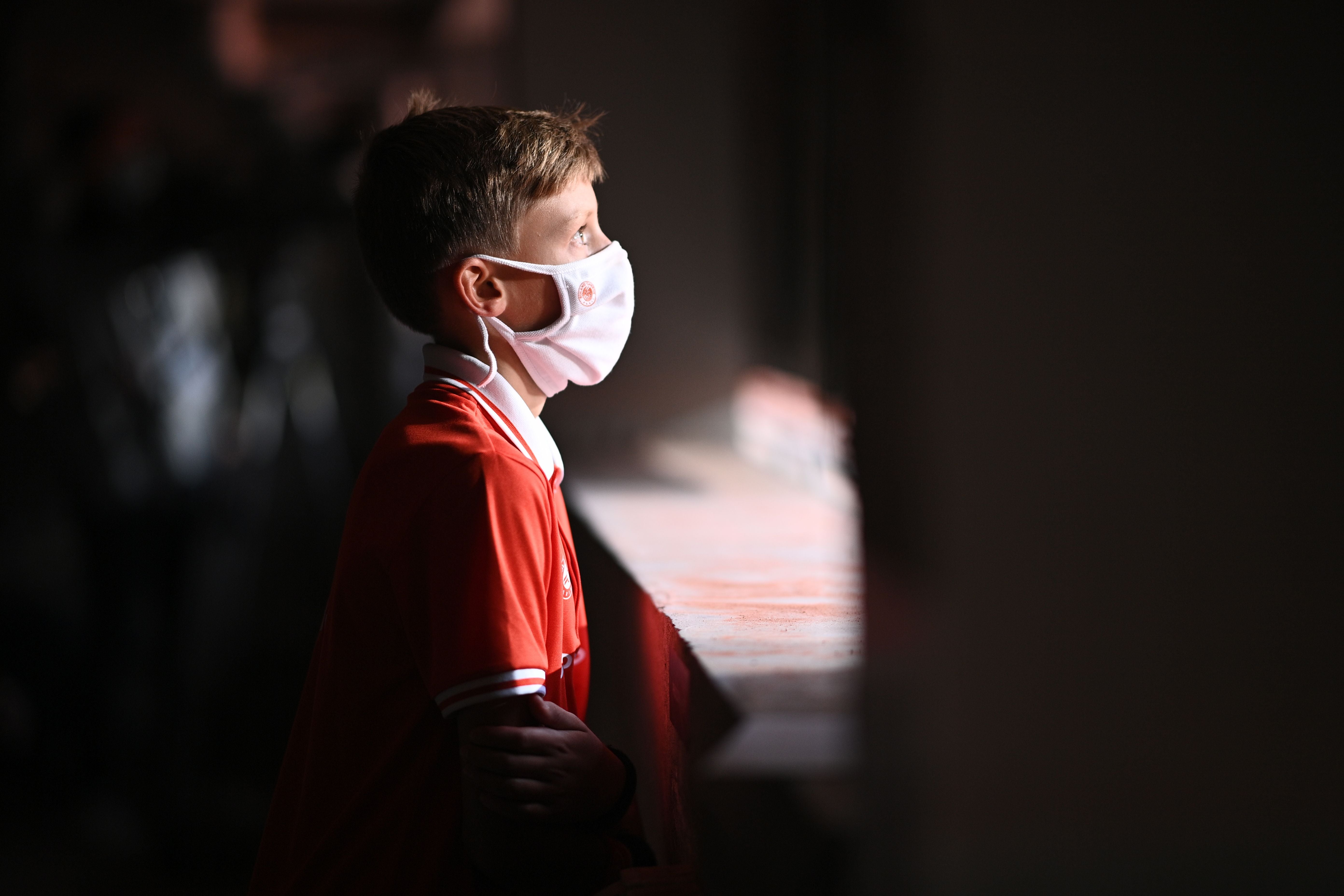Children unlikely to suffer from long-lasting Covid symptoms, study suggests
Average illness in symptomatic children lasts six days, according to research from Kings College London – but experts warn against making ‘bold statements’ on prevalence of long Covid in young people

Your support helps us to tell the story
From reproductive rights to climate change to Big Tech, The Independent is on the ground when the story is developing. Whether it's investigating the financials of Elon Musk's pro-Trump PAC or producing our latest documentary, 'The A Word', which shines a light on the American women fighting for reproductive rights, we know how important it is to parse out the facts from the messaging.
At such a critical moment in US history, we need reporters on the ground. Your donation allows us to keep sending journalists to speak to both sides of the story.
The Independent is trusted by Americans across the entire political spectrum. And unlike many other quality news outlets, we choose not to lock Americans out of our reporting and analysis with paywalls. We believe quality journalism should be available to everyone, paid for by those who can afford it.
Your support makes all the difference.Children are unlikely to suffer from long-lasting symptoms following a Covid infection, a new study has suggested.
The vast majority of children who catch Covid do not develop symptoms, but those who do typically recover within a week, according to research from King’s College London (KCL).
The study, published in The Lancet Child & Adolescent Health journal, looked at 1,734 children who tested positive for Covid-19 close to the onset of symptoms.
It found that the average illness lasted six days, with most children recovering from their symptoms within four weeks.
A minority – 77 children, or 4.4 per cent – continued to experience illness after a month, while fewer than 2 per cent were still struggling with symptoms beyond eight weeks.
Among those children with long-lasting symptoms, fatigue was the most common and persistent. Headache and a loss of sense of smell were also reported, the latter of which occurred later in the illness.
Professor Emma Duncan, a senior author of the report, said it was “reassuring” that cases of long Covid in children are low. “Nevertheless,” she added, “a small number of children do experience long illness with Covid-19, and our study validates the experiences of these children and their families.”
However, some experts have cautioned against making “bold statements” on the prevalence of long Covid, which currently remains a vaguely defined condition.
Although children have been largely spared the worst impacts of Covid-19, the spectre of long-lasting disease has hung over young people throughout the pandemic.
Recent studies have varied considerably in their assessment of the scale and severity of long Covid among children, pointing to the complexities and limited understanding of the syndrome.
Data released by the Office of National Statistics (ONS) earlier this year showed that 9.8 per cent of under-11s and 13 per cent of 12- to 16-year-olds reported at least one lingering symptom five weeks after a positive diagnosis.
A different report published in April found that one-quarter of children who were surveyed after discharge from hospital in Russia post-infection had symptoms more than five months later.
The KCL study is the first of its kind to offer a detailed description of Covid illness in symptomatic children aged five to 17 years.
It was based on data reported through the Zoe Covid Study app. Researchers focused on reports collected between 1 September 2020 and 22 February 2021. They did not assess children directly.
During this period, some 1,734 children developed Covid-19 and received a positive PCR test result close to the onset of symptoms, with their illness reported regularly until they were healthy again.
Overall, these children were ill for an average of six days and typically experienced three different symptoms in the first week of illness.
Illness in children aged 12 to 17 lasted for an average of seven days, compared to five days in those aged five to 11, the study showed. Older children were also more likely to have symptoms after four weeks than the younger cohort.
Dr Liz Whittaker, a lecturer in paediatric infectious diseases and immunology at Imperial College London, said the “reassuring” study reflects what “paediatricians are seeing in clinical practice”.
The authors of the study noted some limitations to their findings. They could not cross-check the symptoms reported by parents and carers with health records, and said there may be inconsistencies in the way people interpret symptoms on behalf of their children.
Only children who had an adult who was using the Covid app were able to participate, which may bias participation towards certain demographic groups.
And the authors also acknowledged that their findings differed from the figures produced by the ONS. This discrepancy likely arises from the different ways that the two studies define the end of Covid illness.
Long Covid is known to be a relapsing and remitting condition, and studies that accept one report of resolution underestimate prevalence by excluding relapses.
Dr Elaine Maxwell, a scientific advisor at the National Institute for Health Research (NIHR), said “estimates of prevalence [for long Covid] are dependent on how it is measured”.
“Almost all studies vary in their case definition, inclusion and exclusion criteria and their findings reflect the fact that they are measuring different things,” she said. “Making bold statements from a single study is therefore inadvisable. It is far too early to conclude that few children will experience persistent symptoms.”
Dr Maxwell added that the Zoe Covid app, which was used for the KCL study, “is a significant outlier of prevalence estimates in adults and it is therefore probably not a surprise that their estimate in children is also low”.
Join our commenting forum
Join thought-provoking conversations, follow other Independent readers and see their replies
Comments